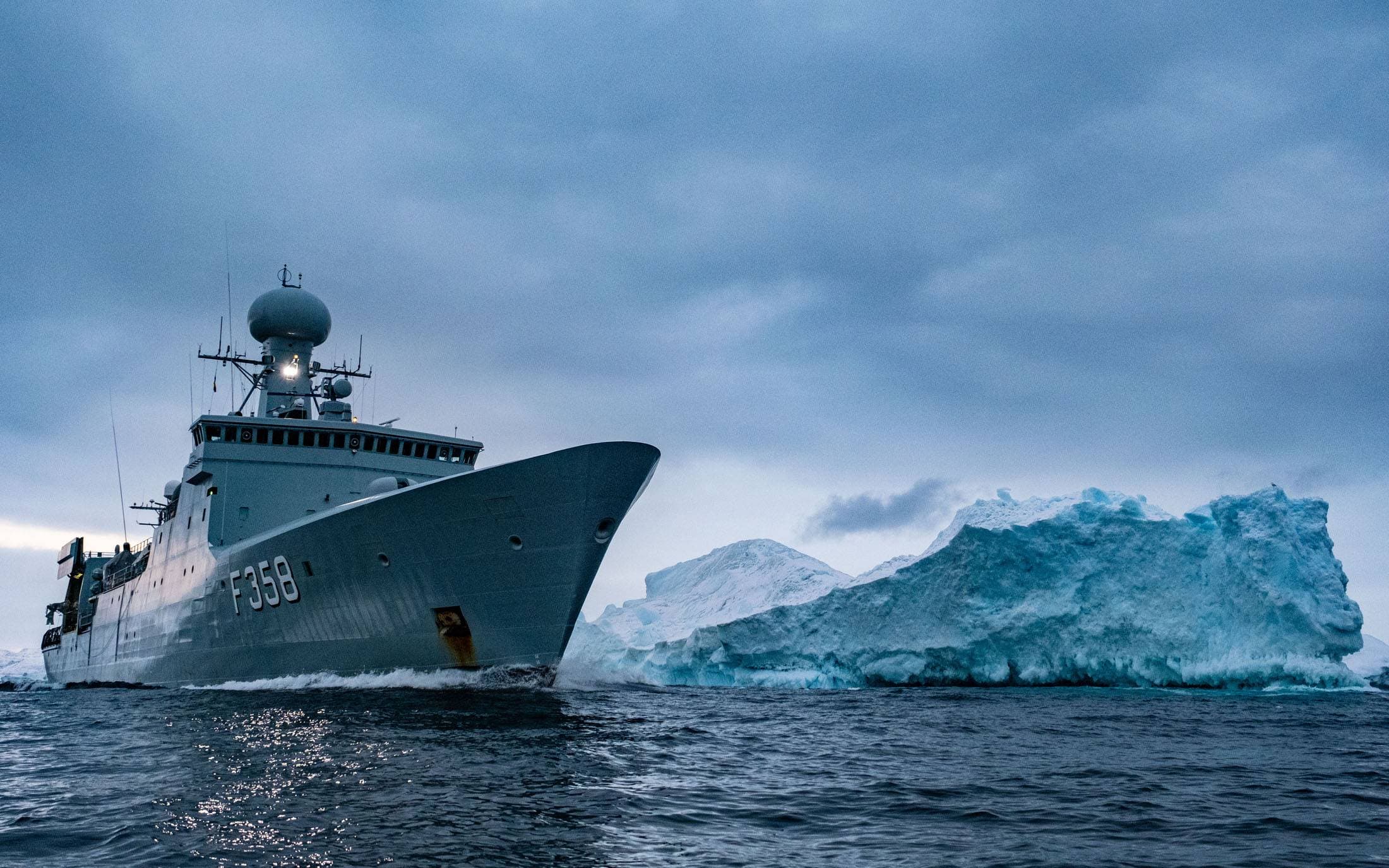We're loading the full news article for you. This includes the article content, images, author information, and related articles.
Denmark has announced a significant defence spending increase, allocating billions towards enhancing its Arctic and North Atlantic security, including the acquisition of advanced fighter jets and new naval assets. This move underscores growing geopolitical competition in the Arctic region.

Denmark on Friday, October 10, 2025, unveiled a substantial defence spending package totalling approximately $8.5 billion (Ksh 1.1 trillion) to bolster its security presence in the Arctic and North Atlantic regions, particularly around Greenland. The comprehensive plan includes the purchase of 16 additional F-35 fighter jets from the United States, bringing Denmark's total fleet of these advanced aircraft to 43.
Danish Defence Minister Troels Lund Poulsen stated that the agreement significantly strengthens the capabilities of the Danish Armed Forces in the region. The investment also covers two new Arctic patrol vessels, a maritime patrol aircraft, new drones, a North Atlantic undersea cable, and the establishment of a Joint Arctic Command headquarters in Nuuk, Greenland.
This substantial investment comes amid increasing geopolitical interest and competition in the Arctic. The melting ice caps are opening new shipping routes and access to mineral resources, transforming the region into a focal point of global competition. Russia, for instance, has been expanding its military presence in the Arctic, prompting concerns among NATO allies.
Denmark's enhanced focus on Arctic security is also a response to calls from allies, including the United States, to strengthen its defence capabilities in Greenland. The US Department of Defense's 2024 Arctic Strategy highlights the need for strengthened surveillance and military rearmament in the region to deter potential threats.
Greenland, an autonomous territory within the Kingdom of Denmark, holds significant strategic importance due to its geographical location. Former US President Donald Trump had previously expressed interest in acquiring Greenland, underscoring its perceived value for military and early-warning ballistic missile systems. Both the Danish and Greenlandic governments have consistently ruled out such a transfer, but Denmark has acknowledged past neglect of the territory's military capabilities.
The new defence package aims to address these shortcomings by funding new Arctic ships, a maritime surveillance aircraft, icebreaker capacity, improved radar systems, and enhanced radar systems. A new military headquarters will also be established in Nuuk, Greenland's capital.
While Denmark focuses on its Arctic security, it also maintains a robust defence cooperation with Kenya. The two nations signed an Implementing Partner Agreement on Maritime Cooperation in February 2024, aimed at combating maritime threats such as piracy, terrorism, and violent extremism in the Western Indian Ocean.
This partnership, which has spanned over a decade, involves Denmark supporting Kenya's military through training and educational programmes at the International Peace Support Training Centre (IPSTC) in Embakasi. Denmark also assists initiatives led by the East African Standby Force (EASF). Kenya's geostrategic position in the Western Indian Ocean is of direct importance to Denmark as a major maritime nation, and the cooperation aims to foster stability and growth in the region.
While the Danish government has outlined its defence spending, specific timelines for the delivery and operational integration of the new F-35 jets and other assets are expected in the coming years, with full operational integration targeted for the early 2030s. Details regarding the full scope of exercises and surveillance capabilities in the Arctic are also anticipated.
Observers will be keenly watching the implementation of Denmark's Arctic defence strategy and its impact on regional dynamics. The ongoing cooperation between Kenya and Denmark in maritime security also remains a crucial aspect of regional stability in the Indian Ocean.
Keep the conversation in one place—threads here stay linked to the story and in the forums.
Sign in to start a discussion
Start a conversation about this story and keep it linked here.
Other hot threads
E-sports and Gaming Community in Kenya
Active 9 months ago
The Role of Technology in Modern Agriculture (AgriTech)
Active 9 months ago
Popular Recreational Activities Across Counties
Active 9 months ago
Investing in Youth Sports Development Programs
Active 9 months ago